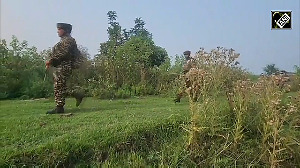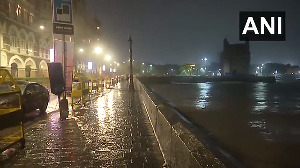Home Minister P Chidambaram on Thursday said the government and the public sector units will retain their first claim on the Central Industrial Security Force cover even after its services are extended to the private sector.
"There will be no question of reducing the CISF cover to public sector units. The first claim will be from the government and the public sector units," he said while moving the CISF (Amendment) Bill 2008 in the Rajya Sabha.
Chidambaram said the CISF security cover would not be extended to the private sector overnight as the force has to be expanded.
The strength of the force would be expanded to 1,45,000 officers and men from the present level of 1,12,534, he said.
The service will be available to the private sector after the government makes a risk analysis, he said.
"We will conduct a risk analysis" before providing the services, he said, adding that preference would be given to areas vulnerable to threats from Naxalites and terrorists.
The government initiated the move to provide CISF security cover to the private sector after the Mumbai terror strikes targeted Taj and Oberoi hotels in Mumbai.
The CISF Bill, which was referred to the Parliamentary Standing Committee on Home Affairs, also seeks to provide protection to Indian missions abroad.
Chidambaram said the Standing Committee recommendations would be taken into account in the amended Bill.
Initiating a discussion on the Bill, Bharatiya Janata Party S S Ahluwalia said that rather than expand the CISF to provide security cover to private establishments, the services of ex-armymen and ex-policemen could be availed of.
He felt that posting of CISF personnel to places like Bangalore and Pune would cause heart-burn among other personnel posted in remote Naxal-hit areas to guard private sector units.
He also sought to know whether the cost factor has been worked out for posting CISF personnel in such places.





